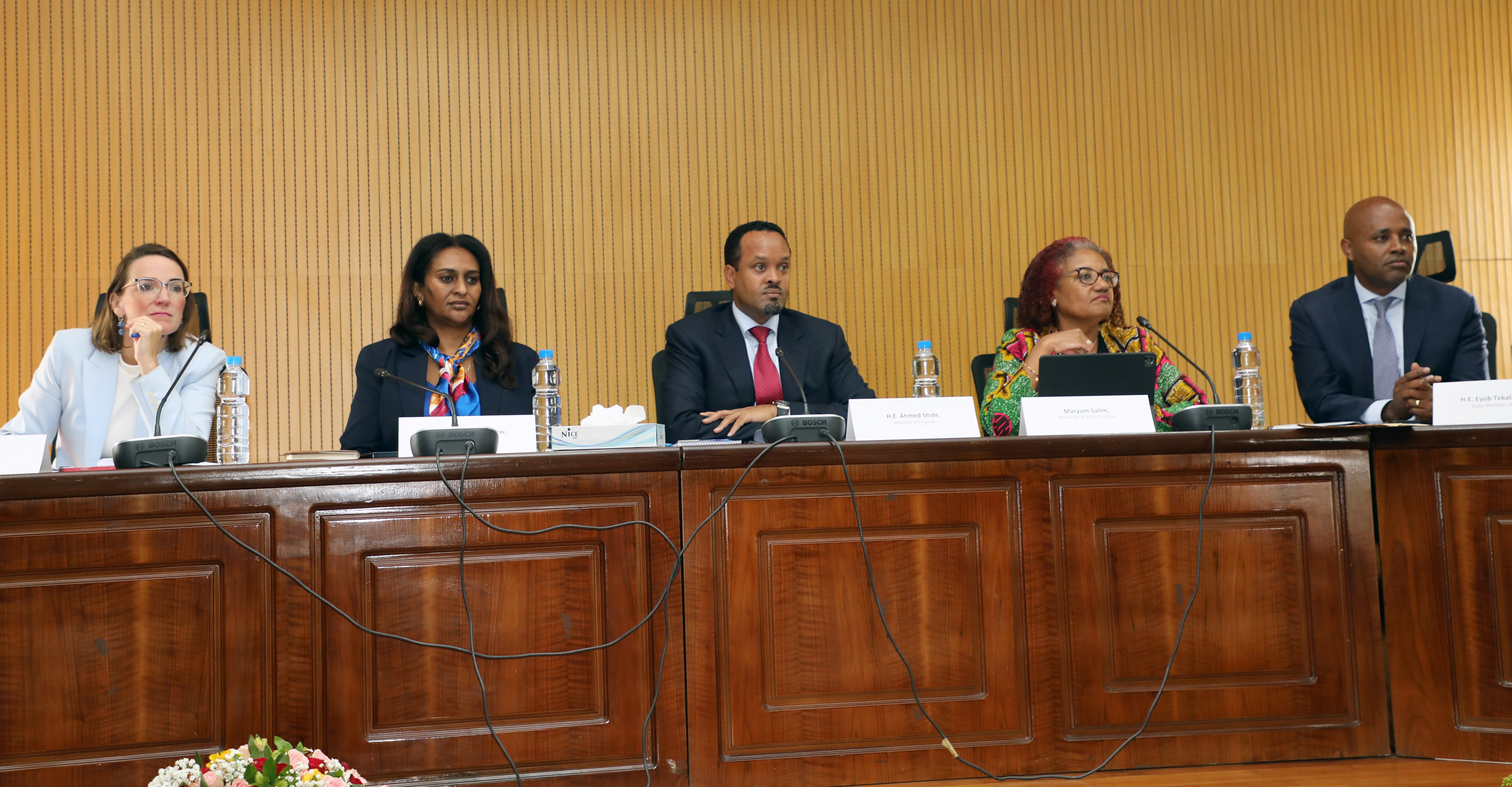Ethiopia Marks Progressive Year in Economic Transformation, Engaging Development Partners for Sustained Growth - ENA English
Ethiopia Marks Progressive Year in Economic Transformation, Engaging Development Partners for Sustained Growth

Addis Ababa, August 27, 2025 (ENA)— Ethiopia’s Minister of Finance, Ahmed Shide described the past Ethiopian fiscal year as a fruitful year for economic reform, highlighting robust achievements including 8.4 precent economic growth and export revenues of USD 8.3 billion—more than double the previous average.
The Government, together with its development partners, convened today at the Ministry of Finance (MoF) for the Head of Agencies Meeting to review the nation’s macroeconomic reform program under the theme “Ethiopia’s Macroeconomic Reform Journey: Successes and Next Steps”, marking one year since its implementation.
Minister of Finance, Ahmed Shide noted that net tax collections surpassed 700 billion Birr in 2017 fiscal year, a milestone that significantly strengthened fiscal resilience.
The Minister also underscored the government’s continued commitment to inclusive growth, with ETB 60 billion allocated for social safety nets, ETB 180 billion for subsidies, and salary adjustments for civil servants to safeguard citizens from both domestic and external shocks.
On his part, State Minister of Finance, Eyob Tekalegn highlighted the “truly historic reforms” that are steering Ethiopia’s transition from a controlled economy to a modern, private sector–led system.
While briefing the gathering, he noted that the Home-Grown Economic Reform (HGER) agenda, launched in 2019, is designed to restore macroeconomic stability and address structural weaknesses by fostering a more conducive investment and trade environment. Over the past year, significant progress has been achieved through fiscal reforms, tax policy enhancements, and state-owned enterprise (SOE) reforms.
Major reforms in monetary policy and foreign exchange management. He reported that inflation has eased to 13.9%, with projections to reach single digits by the end of the coming year, Mamo Mihretu, Governor of the National Bank of Ethiopia, underscored.
He added key measures included the shift to market-based exchange rates and the removal of mandatory surrender requirements, which enhanced efficiency and flexibility in the foreign exchange market.
As a result, foreign exchange earnings rose by 33%, while private sector access significantly improved. He emphasized that the challenge was not the availability of foreign exchange itself, but rather its administration and management.
State Minister of Planning and Development, Bereket Fisehatsion stated that Home Grown Economic Reform II (HGER 2.0) involves reforms beyond fiscal and monetary policies, focusing on productive sectors and public sector efficiency.
The country has also attracted $4 billion in foreign direct investment, ranking second in Africa, and created 4.5 million jobs.
Development partners, including the IMF and World Bank, expressed strong support for Ethiopia’s reform agenda.
Maryam Salim, World Bank Country Director, praised Ethiopia’s transition toward a more open, market-oriented economy, highlighting growth in exports, declining inflation, and increased revenue. She emphasized the importance of sustaining and deepening these reforms.
Development partners also raised questions on ongoing challenges, including preparedness to address unpredictable shocks in the agricultural sector, limited fiscal space, debt vulnerabilities, and risks from external shocks and regional instability.
They stressed the need for careful prioritization to promote job creation, address youth unemployment, and mitigate poverty pressures by ensuring resources are allocated efficiently.
They further noted that improved tax administration and enhanced domestic revenue collection will be essential to strengthen the private sector, support continued reforms, and enable sustainable economic growth.
In his closing remarks, Minister Ahmed Shide reaffirmed the government's commitment to continuing Ethiopia’s macroeconomic reforms, focusing on resilience, food self-sufficiency, and social progress.
He urged development partners to maintain support and emphasized the importance of ongoing collaboration to achieve sustainable and inclusive prosperity for Ethiopia.